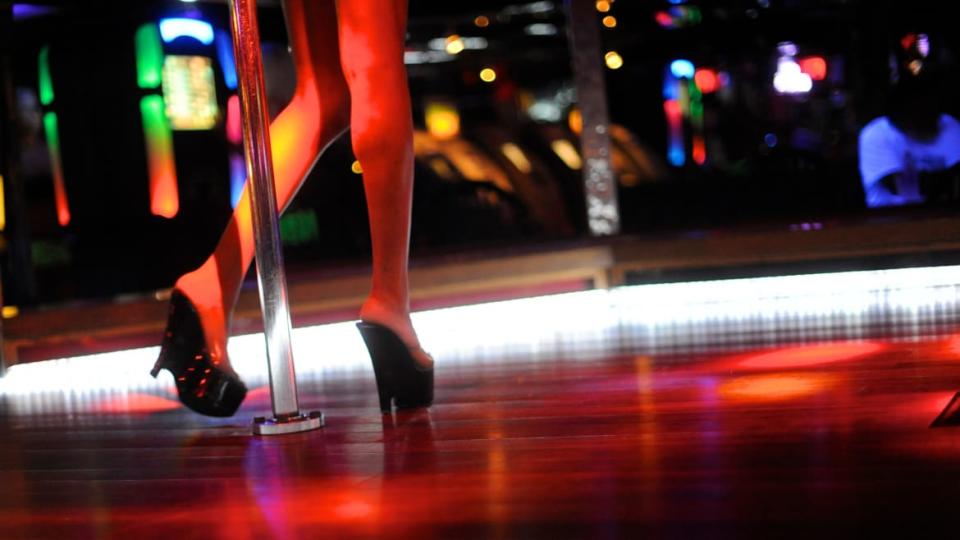Strip Club Bartender Says She Was Fired for Getting Pregnant

A former bartender says a San Antonio strip club fired her after she became pregnant, with managers telling her she no longer fit the “fantasy” of the establishment.
The bartender, Sara Soto, alleges in a federal lawsuit filed last week that managers at—also known as San Antonio Men’s Club—reduced her hours to zero after she informed them she was expecting a baby. (Calls and emails to the club from The Daily Beast went unanswered. Reached by phone, one of the owners, Theodore Dimopoulos, declined to comment.)
Soto, 31, started working at the strip club in 2017 and says she generally worked five shifts a week. Approximately two months after alerting the business of her pregnancy, she says, she was cut down to three shifts a week, then two.
According to the lawsuit, Soto texted the scheduling manager to ask about the reduced shifts, and he allegedly responded: “I am suppose to let u go till ur done with the pregnancy but was tryn to give u some shifts.” That was after she spoke to general manager Kenneth Dean, who she claims told her that she no longer fit into the “fantasy” of the business because no one wanted to see a pregnant woman at a strip club.
In May 2019, four months after she notified the business of her pregnancy, Soto says she went into work for a baby shower and learned that she was no longer on the schedule at all. She was never given any further shifts, according to the lawsuit.
Soto then filed a complaint with the U.S. Equal Employment Opportunity Commission, alleging that the strip club had violated Title VII of the Civil Rights Act by discriminating against her for her pregnancy. According to the suit, the EEOC found that the available evidence showed her pregnancy was “the motivating reason for the adverse actions taken against her” and that the business “did not provide evidence to show that the adverse actions taken against the Charging Party were motivated by non-discriminatory reasons.”
“As such, I find that Respondent violated Title VII by reducing Charging Party’s work shifts, then by removing her entirely from the work schedule, effectively terminating her employment due to her sex,” the decision reads, according to the suit.
The EEOC granted Soto the right to sue this summer, according to the suit; it was not clear whether the agency awarded her any damages. Soto is now suing the business in federal district court in Western Texas, seeking compensation for her lost wages and emotional suffering, among other things.
A similar case took place in Georgia in 2013, when an Atlanta-area stripper alleged she was taken off the schedule the day her manager learned she was pregnant. (The two parties settled in 2015.) A waitress at Hooters also filed a complaint with the New York State Division of Human Rights in 2019, claiming the so-called “breastaurant” fired her after learning of her pregnancy.
35 Bar & Grille filed a lawsuit of its own in 2013, challenging a San Antonio law that required establishments to be classified as “sexually oriented businesses” if their female employees wore less than a bra or bikini top. The company said the law violated dancers’ constitutional right to freedom of expression and would also cause the business severe economic damage.
The gentleman’s club lost the case, but it did produce what The Telegraph called the “world’s cheekiest written ruling.”
“Should the parties choose to string this case out to trial on its merits,” U.S. District Judge Fred Biery wrote at the time, “the Court encourages reasonable discovery intercourse as they navigate the peaks and valleys of litigation, perhaps to reach a happy ending.”
Got a tip? Send it to The Daily Beast here
Get our top stories in your inbox every day. Sign up now!
Daily Beast Membership: Beast Inside goes deeper on the stories that matter to you. Learn more.

 Yahoo Finance
Yahoo Finance 